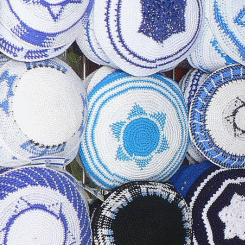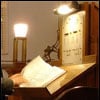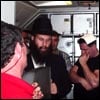This past Shabbat saw the East Coast, including Brooklyn, N.Y., battered by what experts are calling a “bomb cyclone.” The name alone made this humble Brooklyn rabbi shiver.
“Will I have a minyan in my frozen borough?”
However, after a warm glass of tea (the lemon helped...) I recalled an odd “minyan phenomenon.” Namely, the inverse relationship between inclement weather and the number of parishioners: The worse the weather, the greater the participation!
But why? Does sub-zero wind chill somehow bring out the best in Jews? Do words like “bomb cyclone” pull them in, to pray for survival? Are my minyan-ites adrenaline junkies who risk being swept into the East River?
Is there a lesson here?
I'm reminded of a story from a congregant, Betzalel. He told me he started a minyan in his office in a Manhattan building. As it happens, his building is a veritable United Nations of Jewish demographics. Yet, despite the fact that there were practically enough Jews to start a kibbutz, everyone he asked said the same thing:
“I’ll do it. But call me when I’m the tenth in the minyan!”
Let’s examine this simple example.
“I’ll come. I’ll attend . . . if you need a tenth.”
Everybody wants to be the tenth. That is, everybody wants to be the hero.
And herein lies the answer to the inverse relationship between rotten weather and the minyan. When our community hears that cyclones are coming, that Brooklyn will be buried under snow, or other warnings that Mamala Nature is about to unleash her mighty wrath, we begin thinking, “G‑d forbid there shouldn’t be a tenth in this maelstrom,” they (myself included) see an opportunity to be the hero who saved the minyan!
While the intention is admirable, this rabbi is forced to shovel deeper.
I’m reminded of another story, that of the faraway king who was visiting a small town. In celebration, the townsfolk wanted to present the king with a barrel of vodka in honor of this joyous occasion.
To defray the cost, the townsfolk agreed to each bring a cup of vodka to pour into the barrel.
However, one resident named Yankel, who had fallen on hard times, came up with the brilliant plan to substitute his vodka with water, figuring that it looks the same, and when mixed with everyone else’s vodka, no one would notice.
When the king arrived and his goblet was filled for a royal l'chaim, he took a swig of this touted potable, and said: “My countryman, I have perhaps reigned too long. Your vodka tastes exactly like water!”
Apparently, Yankel was not alone. Each family had thought to themselves, “Why should I waste my vodka?”
The question is: Is any deed, no matter how noble, really the highest form of giving, of being, if it’s based upon what others may or may not do?
After all, we can’t all be “the tenth.” A minyan requires nine others. So, in truth there is no “tenth.” Rather, together, all form this holy group.
True affiliation and participation demands that each individual be a keeper of his or her own values, pure and unaffected by others. That fits my definition of heroic.
Let's not wait for “bomb cyclones” to make up our minyan, but uphold all practices “come rain or come shine.”






Start a Discussion